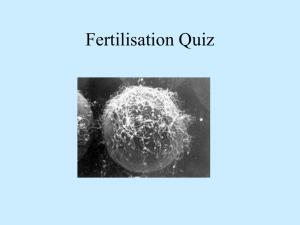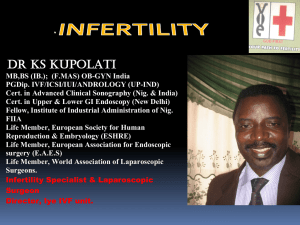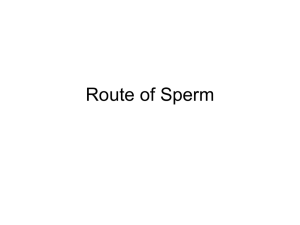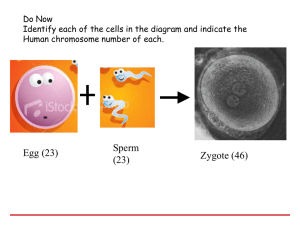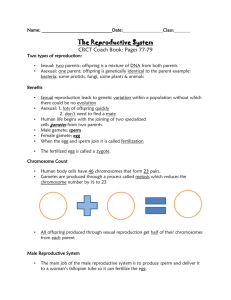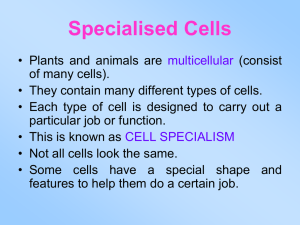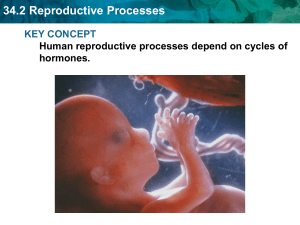IVF materiale
advertisement
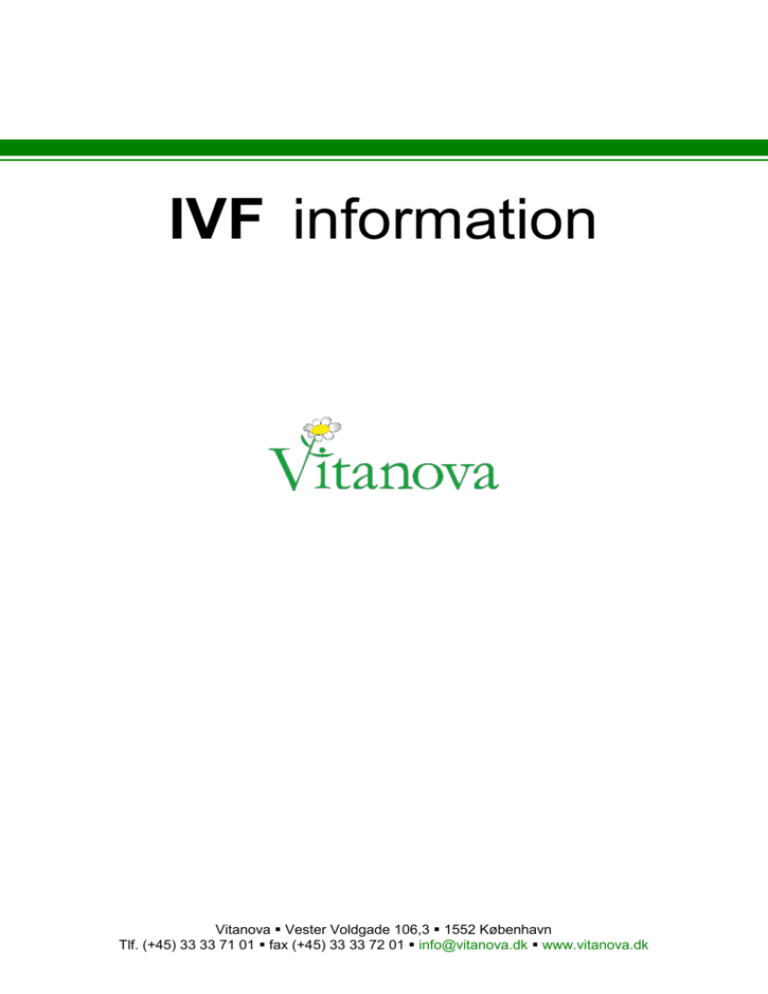
IVF information Vitanova Vester Voldgade 106,3 1552 København Tlf. (+45) 33 33 71 01 fax (+45) 33 33 72 01 info@vitanova.dk www.vitanova.dk Side 1 af 12 Information on IVF Welcome to Vitanova and thank you for your enquiry. This information is intended to provide you with answers to some of the questions and thoughts you probably have right now. We want to give every individual the best possible treatment and care during the process, so please do not hesitate to call or e-mail if you need further information or have any questions. We help single parents, and both heterosexual and lesbian couples. You can start fertility treatment once you have had the first consultation and a plan has been made for your course of treatment. You can book for an appointment on +45 33 33 71 01, or by e-mail: info@vitanova.dk. We cannot offer treatment for women aged 46 years or over (cf. legislation on artificial fertilization), but there is no age limit for men. We recommend IVF if: The woman has blocked fallopian tubes The man has reduced sperm quality The woman has endometriosis or PCO The woman or man has been sterilised There are unexplained reasons for infertility Failure to become pregnant by artificial insemination We can offer one of the following treatments, depending on the reason for infertility: IVF, in-vitro fertilisation, where fertilisation occurs outside of the body, also called test tube fertilisation ICSI, intracytoplasmic sperm injection, where sperm is injected directly into the egg, and is used in cases of reduced sperm quality TESA testicular sperm aspiration, where sperm is removed from the testicles Before you can receive treatment, you need to talk to us, so we can decide on the right treatment for you. In this information material, you can read about the examinations needed before you can receive treatment. If you already know the reason for your infertility or you have received treatment elsewhere, it would be a great help if you can provide us with a copy of the medical record and any information on egg development, stimulation and semen analysis. We can do a semen analysis if one has not been made. We would like to receive this information and test results, before the initial consultation, so we know as much as possible about your current situation beforehand. If you are a couple, you must both be present at the first consultation. If you are going to use donor sperm, we can agree during the consultation what your wishes are with regard to the donor, such as eye colour, hair colour, and height. IVF, initial consultation and examination Before you start, you must come for a consultation where you will be fully informed about the process. We also want to know your wishes and what you expect of us. We then plan your course of treatment, so that you know exactly how it will go. The consultation lasts about an hour and, except in unusual circumstances, must take place at the clinic. If you have already undergone the necessary checks before you come to the consultation and everything is all right, treatment can start in the next menstrual cycle. Examinations women can have done before starting treatment We need the results of the following examinations before you can start with IVF, but you can certainly have the initial consultation before taking the tests. At the initial consultation, we will assess whether there is a need for additional examinations. If you have undergone treatment or testing somewhere else, we are not likely to repeat the examinations. We start with an ultrasound of the uterus and ovaries, to see if everything seems to be normal. Vitanova Vester Voldgade 106,3 1552 København Tlf. (+45) 33 33 71 01 fax (+45) 33 33 72 01 info@vitanova.dk www.vitanova.dk Side 2 af 12 Hormone examination Depending upon what your menstrual cycle is like, we can make a hormone assessment. A blood sample has to be taken on the 2nd, 3rd, or 4th day of your cycle. The 1st cycle day is the first day of menstruation, the day when bleeding really begins. Do not count the days where there is only a brownish discharge. You are examined for FSH, LH and Oestradiol, which are the hormones that govern a woman's cycle and the formation of the follicle in which the egg lies and matures. The blood samples can be taken by us or by your own GP. The hormone tests will show whether you are nearing menopause, and results of the tests are very important for the treatment and the outcome. If you get the blood tests done by your GP, you must send or fax the results to us. Rubella, Parvovirus and Toxoplasmosis Rubella If you are not sure whether you have had the disease or been vaccinated against it, you can contact your GP and take a blood test to find out. If you are not immune to the disease, we recommend that you have a vaccination. After three months, you can start the treatment. Parvovirus It is not possible to vaccinate against parvovirus infection. If you had the disease as a child, you cannot get it again. If in doubt, your GP can take a blood test to check your immune status. If you are not immune, then during your pregnancy you must take care not to come in close contact with children who have the disease. Toxoplasmosis Toxoplasmosis is caused by a parasite whose main hosts are cats, and it can be transmitted to humans via cat faeces. So it is advisable for pregnant women not to clean the litter tray because the disease can be transmitted to the foetus. This does not mean that you have to get rid of the cat – just that you should think a little more carefully about your contact with it. A blood test can show whether you are immune to toxoplasmosis. Immunity also means that you cannot transmit the disease to the foetus. Infectious diseases; women and men It is a legal requirement that women and men receiving fertility treatment must be tested for AIDS (HIV1 and HIV2) and hepatitis: Hepatitis B (HBsAg) and anti-HBc (antibody) and Hepatitis C (anti-HCV). If you have the blood tests done by your GP, you must send or fax the results to us. Under the Danish Tissue Law, by which we are certified, name(s), social security number(s), test date(s), and what tests were taken, must all be clearly shown on the results. Blood tests must not be more than two years old. If you have not had the blood tests, or they are too old, we can take them when you come for the consultation. The results of these tests must be negative before we can begin treatment. It takes approximately one week to get the results from the laboratory. Sexually Transmitted Diseases If you are under 26, both of you have to be tested for Chlamydia before treatment starts. Chlamydia can be symptom-free, so you can have the disease without knowing it. Chlamydia can lead to the fallopian tubes sticking together so the woman cannot conceive normally. Both of you must also be tested for syphilis. Summary of the tests that must be taken prior to treatment Women To be taken before starting treatment HIV (HIV1 and HIV2) Hepatitis (HbsAg, anti-HBc and anti-HCV) Men To be taken before starting treatment HIV (HIV1 and HIV2) Hepatitis (HbsAg, anti-HBc and anti-HCV) Vitanova Vester Voldgade 106,3 1552 København Tlf. (+45) 33 33 71 01 fax (+45) 33 33 72 01 info@vitanova.dk www.vitanova.dk Side 3 af 12 Chlamydia, if you are under 26 years old Hormone tests, FSH, LH and oestradiol SMEAR (cell sample from the cervix) When unsure of immune status, also Rubella, Parvovirus, Toxoplasmosis Chlamydia Semen analysis IVF Treatment During IVF (test tube fertilisation), the ovaries are stimulated to mature more eggs, and then we remove the eggs from the ovary. This is done through the vagina under ultrasound scanning. Fertilisation with the man’s sperm or donor sperm takes place in our laboratory. When one or more eggs have been fertilised and we can see that they have begun to divide, one or more are put back into the womb. To ensure there are enough eggs for collection, you are stimulated with hormones during the cycle you want to start treatment in. So you will need to be scanned several times during the process. Your own gynaecologist can do the scan, but then we must receive the scan results by fax or e-mail immediately after you have been scanned, so that we can advise you on how to proceed until egg pick-up. Hormone Stimulation You can try IVF treatment with natural cycles, without using hormone stimulation, but the chances of collecting just one good egg for fertilisation are very small compared to a hormone-stimulated cycle. Our aim with hormone stimulation is for you to produce 8 to 12 eggs. This is the optimal number for achieving pregnancy. Some women produce fewer eggs, others more. If you produce more eggs, there is a risk of overstimulation after embryo transfer. Symptoms of overstimulation are putting on more than a kilo per day, your stomach becomes large and tight, and you may have problems with breathing and nausea. The symptoms are a result of overstimulation causing fluid to collect in the abdominal cavity. Overstimulation is worst around one week after egg pick-up and usually stops within a week or two. Overstimulation is not so common nowadays, because it has become easier to adjust the hormone dosage to the individual. Hormone stimulation tends to make the abdomen sore and give a bloated stomach. To ease these symptoms, it is important that you drink 3–4 litres of fluid per day after egg pick-up. If you get symptoms of overstimulation contact us or your GP. There are two ways of giving hormone stimulation: short protocol treatment or long protocol treatment with down-regulation. We agree which of the two is best for you at your first consultation. Short protocol treatment is a milder process in relation to hormone stimulation; long protocol treatment with down-regulation is preferable if you live far away, because it does not require so many visits to us. Short protocol treatment In the short protocol treatment, the hormone stimulation follows your natural cycle. You could say that we enhance the effect of your own hormones to produce more eggs. It gives fewer side effects than the long protocol treatment, in which the woman's own hormones are taken out of the equation, also known as downregulation. Precisely because we follow your natural cycle, short protocol treatment is more difficult to organise, because you have to come for more scans underway. If you live far away, your own gynaecologist can scan you, provided we receive a copy of the result, so we can advise you. Long protocol treatment with down-regulation The treatment begins with what is called down-regulation of your own hormones. This means that you get the same hormonal condition as you would at menopause. Some women therefore have symptoms like hot flushes and their emotions are affected. The treatment has the advantage that it can be extended for a few days during down-regulation of the ovaries. This means that to some extent you can choose the day you wish to have a scan and when egg pick-up will take place. If you live abroad, we recommend long protocol treatment with down-regulation. Using this method, your own gynaecologist can make the necessary scans underway and you only need to be in Denmark 3–4 days for Vitanova Vester Voldgade 106,3 1552 København Tlf. (+45) 33 33 71 01 fax (+45) 33 33 72 01 info@vitanova.dk www.vitanova.dk Side 4 af 12 egg pick-up and embryo transfer. Egg pick-up can be delayed for a few days, so we can take into account when you can be in Copenhagen. The hormone treatment you can take care of yourself at home and we can always be contacted by telephone. Course of treatment The actual hormone treatment is administered by nasal spray and injection of the hormone in the abdominal wall. You will get both verbal instructions from us and a DVD to take home, which will show how you, your husband, or others, can give the injections. For some, the thought of having to inject themselves is quite unpleasant, but most get used to it quickly. The needle is very thin, and even with slight pressure, you can pierce the abdominal wall without much pain and there is no risk of doing anything wrong. Egg pick-up, the woman Once an adequate number of follicles have formed, you will be given an egg-releasing injection and collection is usually done after 36 hours. When you come for egg pick-up, a needle will be inserted into your arm, so the nurse can give you a painkiller. You will also have a local anaesthetic in the vagina, so that the process is as painless as possible. Some feel almost nothing, while others may feel discomfort or pain. The nurse can give you additional pain relief underway. You become drowsy from the pain relief, but you are awake all the time. The doctor scans the ovaries and inserts a thin needle through the vagina into the ovaries. The eggs are sucked out. The actual collection process takes 15 to 20 minutes. Then you can go and lie down in our recovery room until the anaesthetic has worn off. It takes approximately 30 minutes. You may feel tired and slightly groggy for the rest of the day. Most feel a little throbbing, or the abdomen becomes bloated, or they experience slight pain in the lumbar region; these are all normal. We recommend that you also relax as much as possible for the rest of the day, and you must not drive after the procedure, because you will still be under the influence of the pain relief medication. It is best that you are not alone for next 24 hours. In the days after egg pick-up, you can get back to your usual daily routine. Egg pick-up, the man If you bring your semen when you come in for egg pick-up, it must not be more than one hour old when you deliver it to us. During transportation, the container must be kept close to the body so that the semen remains at body temperature, but it must not be hotter. If you prefer to provide a sperm sample at the clinic, we have a room where you can make it in absolute privacy and you will not be disturbed. To get the best possible semen sample it is important that you have not ejaculated during the last three days before egg pick-up. Sperm can get too old if they have been too long in the testicles, and therefore it is good if you ejaculate four days before egg pick-up and then not for the next 3 days. Embryo transfer After collection, the eggs will be fertilised in the laboratory. The bio-analyst adds sperm to the eggs or injects sperm into each egg, also known as ICSI, micro-insemination. ICSI can be used if there are not many good sperm cells in the semen sample. The eggs and sperm are placed in an incubator until the next morning, where we can see how many eggs have been fertilised. Then we regularly look at the eggs under a microscope until the eggs are transferred back to the womb. This occurs two days after collection. You will usually have 1-2 fertilised eggs put back into the womb. The transfer occurs in the same way as insemination. We put a thin catheter into the womb and inject the fertilised egg back in. It only takes a few minutes, and then you can carry on as usual. The eggs cannot come out of the womb again. For the next 14 days, you must apply a hormone stimulant cream in the vagina. You can take a pregnancy test approximately 16 days after embryo transfer. You can either do the test at home using urine, or get your GP to take a blood test. Please contact us when you have the test results – even if you are not pregnant. If you are pregnant, we would like to see you for a pregnancy scan about three weeks later, when you are in the eighth week of pregnancy. Your own gynaecologist can also scan you, but we ask you to fax or e-mail the scan results to us. If you are not pregnant, stop the hormone stimulation, and you will get your period. It may be later than to your usual cycle. We can then discuss how to proceed. If your gynaecologist takes a scan, contact us, then fax or e-mail the results of the scan to us, so that we can plan the best course of treatment. You must arrive in Copenhagen the day before the egg pick-up and should stay Vitanova Vester Voldgade 106,3 1552 København Tlf. (+45) 33 33 71 01 fax (+45) 33 33 72 01 info@vitanova.dk www.vitanova.dk Side 5 af 12 there until the embryo transfer, a total of 3-4 days. You can go home the same day as the embryo is transferred. Other services in connection with IVF treatment Freezing of eggs With IVF, usually fewer eggs are transferred back, than were taken out. If there is a surplus of suitable, fertilised eggs after treatment, they can be frozen and used in subsequent treatments. The thawed eggs are usually transferred in a natural cycle, and it is therefore less of a burden to you than regular IVF treatment with stimulation. ICSI ICSI, or micro-insemination, can be a solution when infertility is due to the man having reduced sperm quality, or if normal IVF treatment has not resulted in fertilised eggs. It may also be a solution if the man has frozen semen of poor quality, or produces antibodies against his own sperm. The actual preliminary treatment, hormone stimulation, is the same as in conventional IVF. With ICSI, an extremely thin glass needle is used to fertilise the eggs by injecting a single sperm into each egg. The eggs are then placed in an incubator, where they will begin to divide. Ideally, they will have divided into 6-8 cells after three days, and are ready for embryo transfer. TESA (testicular sperm aspiration) If the man has been sterilised or has blocked sperm ducts for other reasons, we can obtain useable sperm by means of TESA. TESA is an operation under local anaesthetic to extract sperm from the scrotum. After local anaesthetic in the groin just above the scrotum, a thin hypodermic needle goes into the scrotum. The sperm is in small stings in the scrotum and these are sucked out through the needle. The bio-analyst then examines the cells for useable sperm, which must mature for 24 hours in the laboratory before they can be used in ICSI. TESA is therefore carried out the day before egg pick-up. The actual operation takes about 30 minutes, after which you have to stay at the clinic and rest for an hour. You will experience tenderness in the scrotum for a few days after the operation and should take 1–2 days sick leave. You cannot drive immediately after the operation. FER (frozen embryo replacement) When eggs are collected, usually more are taken out than are needed for the first attempt at IVF. Once fertilisation has taken place, the remaining eggs can be frozen for later use. Fertilised eggs are called embryos. Although the method we use to freeze the embryos, vitrification, is very gentle, it is a difficult process and we cannot predict how many of the embryos will be suitable for embryo transfer later. Embryo transfer can be carried out either in your own natural cycle or in a hormone-stimulated cycle, in which we have prepared the mucous membrane of the womb to receive the fertilised egg. In either case, after embryo transfer you must apply a hormone stimulant cream in the vagina. The hormone stimulant prevents you having a menstruation even though you are pregnant. AHA (assisted hatching) About 5–6 days after fertilisation, 16 cells will have formed and the egg will measure about 1/10 mm. Liquidfilled cavities will begin to form between the cells in the egg. Some cells right out on the edge of the egg will later form the foetal membrane and placenta. These cells grow attached to the wall of the uterus. The egg is now called a blastocyst. Gradually, as more and more liquid forms in the cavities between the cells, the blastocyst expands and the egg membrane gets thinner. Finally, a small crack opens in the membrane, and this is the process that is called hatching. The crack grows and grows and finally the blastocyst frees itself from the membrane and is ready to attach itself to the uterus wall. With some women, the egg membrane is too tough for hatching to take place by itself. This is seen particularly in women over 40 and women who have receive hormone treatment. In assisted hatching, we use a very sharp needle to scratch the egg membrane and make it easier for the blastocyst to come free of the membrane. Vitanova Vester Voldgade 106,3 1552 København Tlf. (+45) 33 33 71 01 fax (+45) 33 33 72 01 info@vitanova.dk www.vitanova.dk Side 6 af 12 Donor sperm At your first consultation with us, we will tell you about the option of using donor sperm, if the tests show that the quality of the man’s sperm is very low or there are no living cells in the sperm sample. We will advise you and discuss the ethical aspects involved in using donor sperm. If the man has low quality sperm or no living sperm cells, you may have already made a decision before we start talking to you about it. With other couples, the sperm may be of borderline quality for use in fertilisation. Unfortunately, the fact is that sperm quality can vary from time to time, so it is important to make up your minds from the beginning about what you think about the option of using donor sperm if it proves necessary. Unfortunately, it is not possible to freeze unfertilised eggs, so they are destroyed if they do not get fertilised. If you decide to use donor sperm for fertilisation, you have a chance to review the decision before you come for embryo transfer 2 days after egg pick-up. You can either have the eggs reimplanted or freeze them if you need more time to think it over. But it is better to make up your minds from the beginning, so that you do not have to decide about donor sperm in the middle of the process. If you want to use donor sperm, we will discuss your wishes about the donor. You can choose eye colour, hair colour and height. If you want sperm with another ethnic origin than Danish, this is normally possible, but it obviously depends on whether the sperm bank has a donor with the ethnic background you want. Donors in general We buy donor sperm from the Danish sperm banks, Nordic Cryobank or Cryos. The donors have to go through comprehensive physical and mental examination before they are approved. Whether there is hereditary disease in the family is also important. A man with a hereditary tendency to an illness cannot become a donor. Only 1 out of 10 men are approved. You can read about the selection criteria for donors in the Danish National Board of Health’s regulation no. 753 of 03/07/2006 on quality and safety in donation, collection and testing (human tissue and cells). Vitanova Vester Voldgade 106,3 1552 København Tlf. (+45) 33 33 71 01 fax (+45) 33 33 72 01 info@vitanova.dk www.vitanova.dk Side 7 af 12 Journal for the woman, IVF or IUI treatment, return to Vitanova before the consultation This is for our internal information only, and we treat it as a confidential document. We have an obligation of full confidentiality about the information given here. We will ask you to fill out the form before you have the first consultation with us. The form, together with other documents and test results, must be sent, faxed (+45 33 33 72 01), or mailed to us, so we receive it in good time before the consultation. Please contact us if you have any questions, either at info@vitanova.dk or +45 33 33 71 01. With your signature, you confirm that you have received information about IVF and that you agree to the treatment. Are you coming for IUI or IVF? IUI IVF If you have already booked an appointment for the initial conversation please write the date and time her: Date and time: Personal details Name Date of birth Social Security No.: Passport No.: Address Country Telephone Mobile E-mail Private Work Profession Spouse or partner’s name, birthday and year Children's names and years of birth, whether your own or spouse/partner’s Pregnancies and births Pregnancies Number Year Births Number Year Miscarriage Year Pregnancy week Abortion Year Pregnancy week Have you had a pregnancy outside of the uterus? Have you been pregnant with your spouse / partner? Yes No Yes No Have you been pregnant with twins? Yes No Vitanova Vester Voldgade 106,3 1552 København Tlf. (+45) 33 33 71 01 fax (+45) 33 33 72 01 info@vitanova.dk www.vitanova.dk Side 8 af 12 Have you had fertility treatment before? Have you had hormone stimulation before? How many years have you and your current partner tried to have children? Yes No If yes, where? Yes No If yes, where? General information about your health Have you had any serious illnesses? When? Yes No What Do you have any chronic illness (e.g. diabetes, metabolic diseases)? Are there any hereditary diseases in the family, including mental? Have you had any pelvic infections? Yes No What Yes No What Yes No What Do you have allergies, including to any medication? Are you taking any medication, including psychoactive medicine? Have you previously had medication treatment, including psychoactive medicine? Do you use painkillers, including normal medication, such as Ibuprofen? Yes No What Yes No What (preparation) Yes No What (preparation) Yes No What (preparation) Examinations you must have before treatment can begin HIV 1 and HIV 2 Examined on Hepatitis (HbsAg, antiHBc and anti-HCV) Chlamydia (If you are under 26 years of age) SMEAR Positive Negative Examined on Positive Negative Examined on Positive Negative Examined on Positive Negative Additional examinations Hormone status Examined on Result HSU Examined on Result Rubella Examined on Result Menstruation How old were you when your menstruation began? Is your period regular? Yes No How many days does the bleeding last? Menstrual Cycle – for the last 6 months, if possible. The cycle is often 28 days. You count as follows: Day 1 is the day your bleeding starts. The last day is the day before your next bleeding begins. You only need to Vitanova Vester Voldgade 106,3 1552 København Tlf. (+45) 33 33 71 01 fax (+45) 33 33 72 01 info@vitanova.dk www.vitanova.dk Side 9 af 12 specify how many days the cycle was, not the dates of the start and end. If you do not have all six months, please write as many in as possible. 6 months ago: (enter number of days here) Count from the first day of bleeding, to the last day before bleeding begins again 5 months ago: (enter number of days here) 4 months ago: (enter number of days here) 3 months ago: (enter number of days here) 2 months ago: (enter number of days here) 1 month ago: (enter number of days here) Date of your last period’s first day Lifestyle Do you smoke (including joints) or use snuff? Alcohol, units per week Caffeine (coffee, black tea, cocoa, cola) Fruit, approx. how many do you eat per day? Approx. how many grams of vegetables do you eat per day? How often do you eat fish? What vitamin supplements do you take? Height No 0–2 Have you stopped within the last year? Date: 2–5 5 – 10 None Yes, write how many cups/glasses per day Yes, what and how many per day? More than 10 Less than 5 5 – 6 daily More than 6 daily Less than 500 grams 500 grams More than 500 grams Weight Donor wishes Donors are anonymous/open and of Scandinavian/Northern European appearance. We do what we can to fulfil your wishes, but no-one can guarantee precisely the combination of your and the donor’s genes which will be dominant in the child. But no matter how the genes act, you can be sure that your family and friends will always be able to see likenesses between the child, you and your family. Anonymous or open donor: Anonymous Open (I.D.) Have you any special wishes as to the donor´s characteristics? Colour of the eyes: No Yes Not so important Important Colour of the hair: Not so important Important Height: Not so important Important Would you like a donor of another ethnic background? Which Vitanova Vester Voldgade 106,3 1552 København Tlf. (+45) 33 33 71 01 fax (+45) 33 33 72 01 info@vitanova.dk www.vitanova.dk Side 10 af 12 I buy sperm in (please mark): European Spermbank Cryos International Do you wish to have acupuncture during the treatment? Yes No Where did you hear of Vitanova? Tick a box Internet From family and friends Adverts/articles Solemn Declaration With my signature, I confirm that I have received information about the IVF treatment both in writing and verbally, and that the above information is accurate and correct. ________________________________________________________________________ Date and signature Vitanova Vester Voldgade 106,3 1552 København Tlf. (+45) 33 33 71 01 fax (+45) 33 33 72 01 info@vitanova.dk www.vitanova.dk Side 11 af 12 Journal for the man, IVF or IUI treatment, return to Vitanova before the consultation Personal details Name Date of birth Social Security No.: Passport No.: Address Country Telephone Mobile E-mail Private Work Profession Spouse or partner’s name Children's names and years of birth, whether your own or spouse/partner’s Pregnancies and births Pregnancies with another than your current partner Miscarriages with another than your current partner Number Year Number Year General information about your health Have you had surgery? (tick box) Yes No Diagnosis Have you had any serious illnesses? Yes No What Do you have any chronic illness (e.g. diabetes, metabolic diseases)? Are there any hereditary diseases in the family, including mental? Are you taking any medication, including psychoactive medicine? Have you previously had medication treatment, including psychoactive medicine? Have you had inflammation of the testicles? Have either or both testicles not dropped? Yes No What Yes No What Yes No What (preparation) Yes No What (preparation) Have you had surgery of the penis or testicles? Yes Yes No Yes No No Reason Vitanova Vester Voldgade 106,3 1552 København Tlf. (+45) 33 33 71 01 fax (+45) 33 33 72 01 info@vitanova.dk www.vitanova.dk Side 12 af 12 Do you have any allergies, including to medication? Yes No Examinations you must have before treatment can begin HIV 1 and HIV 2 Examined on (date) Hepatitis (HbsAg, antiHBc and anti-HCV) Chlamydia (If your partner is under 26 years of age) Semen analysis Lifestyle Do you smoke (including joints) or use snuff? Alcohol, units per week Caffeine (coffee, black tea, cocoa, cola) Fruit, approx. how many do you eat per day? Approx. how many grams of vegetables do you eat per day? How often do you eat fish? What vitamin supplements do you take? Height What Positive Negative Examined on (date) Positive Negative Examined on (date) Positive Negative Date made Where No 0–2 None Have you stopped within the last year? Yes, what and how many Date: per day? 2–5 5 – 10 More than 10 Yes, write how many cups/glasses per day Less than 5 5 – 6 daily More than 6 daily Less than 500 grams 500 grams More than 500 grams Weight Solemn Declaration With my signature, I confirm that I have received information both in writing and verbally about the fertility treatment and that the above information is accurate and correct. ________________________________________________________________________ Date and signature Vitanova Vester Voldgade 106,3 1552 København Tlf. (+45) 33 33 71 01 fax (+45) 33 33 72 01 info@vitanova.dk www.vitanova.dk
